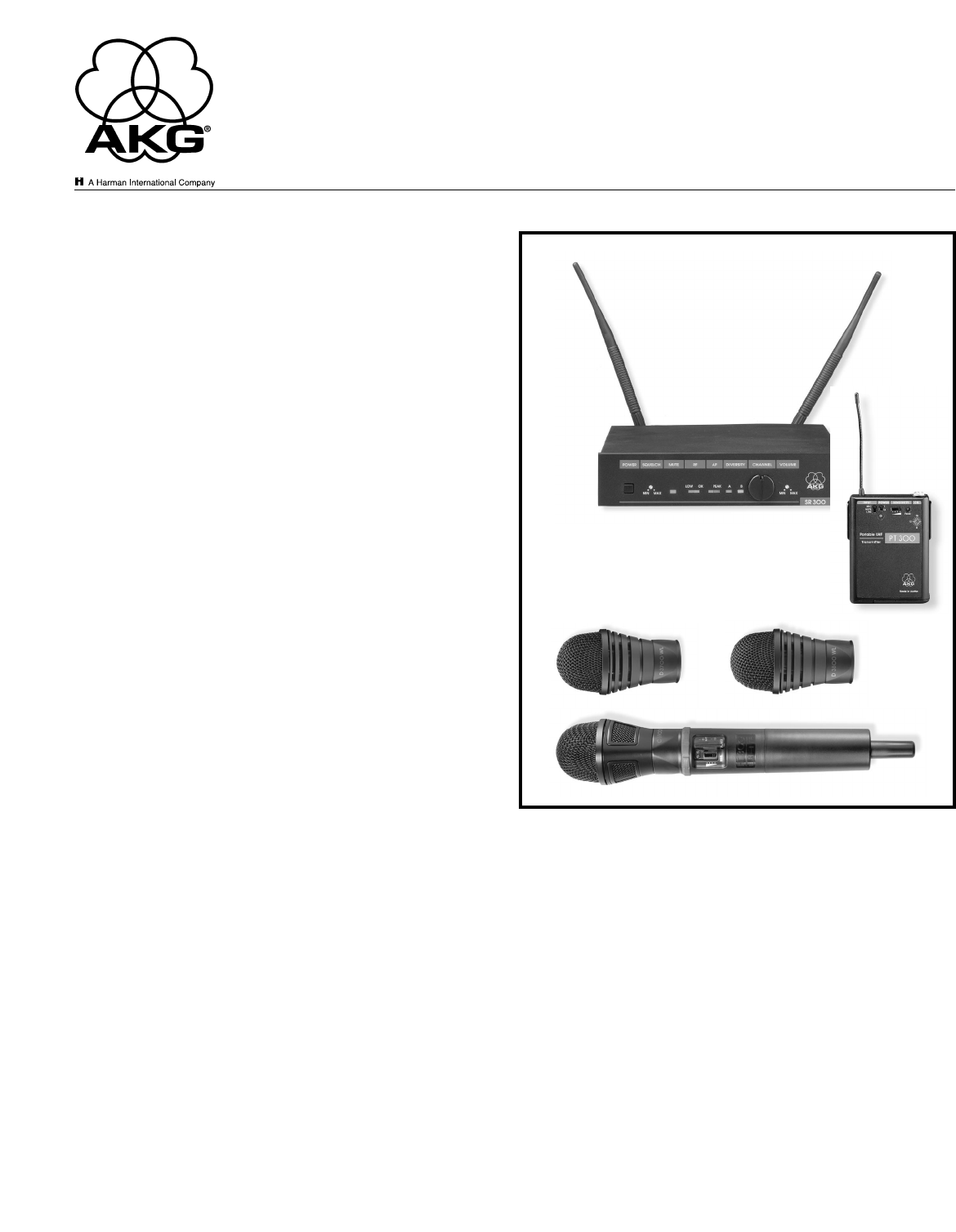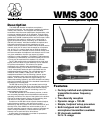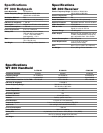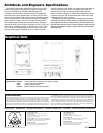
WMS 300
Microphone System
Description
The WMS 300 wireless microphone comprises a
transmitter bodypack, four transmitter handheld microphone
models, and a receiver. The bodypack and handheld
transmitters have the same transmission characteristics, with
a maximum radiated power of 10 milliwatts. Through signal
companding (compression and expansion), a dynamic range
greater than 100 dB is attained at the receiver’s output. Audio
bandwidth of the system is uniform over a wide range in
typical performance spaces, extending up to distances of
330 feet (100 meters). Individual handheld microphone and
bodypack transmitters are factory matched to a given
receiver. Each set provides a 20 MHz-wide UHF send-receive
channel, each with 16 sets of sub-channels for microphone
use. In the U. S., a total of eight sets of 20 MHz channels
may be chosen from. Because of some channel overlap, and
the recommendation that adjacent sub-channels not be used
in a given installation, the user may expect 16 usable
channels in a given installation. The Model PT 300 bodypack
is powered by 3 AA batteries, and normal battery life of 10 to
12 hours can be expected from standard 1.5 volt cells.
The PT 300 accepts both microphone and line level input
signals, and four values of input sensitivity can be selected
for optimum transmission. The antenna is a quarter-
wavelength wire, affording easy concealment and
comfortable wearing. Four of AKG’s most popular handheld
"vocal" microphone head units are incorporated into the
handheld transmitting models. The microphones are the
models D 3700, D 3800, C 5900, and C 535 EB. The
handheld transmitters have the following controls: power
on/off, microphone mute, and input sensitivity control. In
addition, a DIP switch provides for simple setting of the
desired transmitting frequency, and LEDs indicate low battery
and signal overload. Powering of the handheld transmitters is
the same as for the bodypack.
The SR 300 receiving unit is one standard rack unit high
and one-half rack unit wide. Thus, two receiving units can be
placed side by side. Each SR 300 comes from the factory
with a 20 MHz-wide UHF channel containing a set of 16
preset operating frequencies.
The SR 300 operates as a true diversity receiver, in which
two completely separate receiver-demodulator sections are
operating at all times. The output of the system is the receiver
that has the widest dynamic range, and the switching from
one receiver to the other is absolutely noiseless.
Controls on the SR 300 include: squelch threshold adjust,
carrier frequency selection, and output level control.
Indicators on the unit include: mute, audio overload, RF, and
diversity LEDs, Each SR300 can accommodate a pair of
diversity antennas: however, when a number of receivers are
used in a single installation, a master antenna pair (with
booster) can be used and fed to all receivers.
A wide range of accessories is provided for operational
flexibility and ease of installation.
Features
• Factory matched and optimized
transmitter/receiver frequency
group
• True diversity reception
• Dynamic range > 100 dB
• Simple, foolproof setup procedure
• Both bodypack and handheld
microphone transmitters available
• 32 channels available
for U. S. usage





